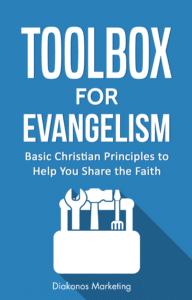It’s no secret that social media is the way of the future. Not only do sites like Facebook have an estimated 2.3 billion monthly users and 1.2 billion daily users, but it also allows you to connect with people outside of your immediate network. Best of all, it’s free!
Next to your website, your church’s social media is the best platform for you to bring the Gospel to your community. Whether it’s through blog links, event shares, or videos (though, ideally, through all of the above), every church needs to have a social media strategy. No excuses.
“But social media is hard!” I’ve heard that a thousand times from different people who (a) understand the need, but (b) don’t know how to meet that need. The answer is simple: automation. By setting up systems in place now and then monitoring the results as you go, you’ll be able to keep your social media on relative autopilot while still reaching thousands of people every day.
Best of all, automation doesn’t even have to be expensive. Though a site like smarterqueue.com costs around $20 a month, others, like recurpost.com and dlvr.it are free (up to a certain amount of users/posts/accounts). For most churches, those sites have all the features you could ever want or need.
For those still on the fence, here are nine reasons you should automate your social media posts.
1. Free Up Time
Though we advocate for a church’s digital marketing efforts to be handled by a deacon (or three), we know that there are several instances where a church either doesn’t have deacons, or the deacons are so consumed with other activities that social media doesn’t normally get handled. That’s why automation is so important. Not only can you set it and forget it, but once it’s up, you’ll be able to add content almost passively. It’s a fantastic use of your time, but one that doesn’t have to suck up hours every week. Or even minutes.
2. Be More Strategic
What is your social media strategy, per se? Or do you even have one? Most churches don’t. They throw up content whenever it’s convenient for them – not a terrible approach, but it definitely not the best either. There are optimal times for you to post on social media; not only when, but what and how, as well .
3. Better Quality Material
Haphazard link vomiting on social media reflects poorly on your church, and in turn, it reflects poorly on Christ. Rather than have package otherwise fantastic content in a hastily-constructed post, take the time to set up high-quality posts and set them on autopilot. No one will know that you have it set up beforehand, and if you don’t tell them, we won’t either.
4. Time-Relevant Material
If you have articles or sermons that work better around a certain time of the year – lessons on modesty around the beginning of Summer, for instance – then you need social media scheduling. Setting those systems in place at the beginning of the year will allow your content to be showcased when it’s most relevant for the person that will be reading it.
5. More Consistent Message
Most preachers I know schedule out their lessons months, or in some cases, even years in advance. They do this so they have a full view of their schedule. They can put lessons exactly where they belong, and if they’re doing a year-long theme, they’ll be able to tie in other lessons to center around that theme. The same principle applies with automation. Instead of posting whatever sounds good in the moment, automation allows you to get a wide view of the year and have a more consistent message across all your channels.
6. More Consistent Postings
It never fails. A church starts up a brand new Facebook page, invites all of their online friends, dumps content after content after content on their page, and then leaves. After a few months, there’s nothing but crickets chirping across on their platforms. The bad news is Facebook sees this lack of interest from you, a lack of engagement from others, and will push your page farther back into the recesses of their closet. When you actually do start posting again, it’ll take longer to be seen and it’ll be viewed by less people.
7. Reuse Important Content
We all need to hear lessons on salvation and hope and prayer. And if you’ve written a game-changing article or preached a sermon on a subject that just lit up the entire pew like a Christmas tree, the last thing you want is for people to view it once and then forget about it. Automating your content means people will see it again, and again, and again – not right away, but over the span of a several months or a few years. Repurposing old content saves time for everyone and also may help people who need it the most.
8. Focus on Engagement
Just because you’ve chosen to automate your social media posts doesn’t mean you can take your hands off the wheel. When someone comments on your posts, it’s imperative that you get back in there and respond to them as quickly as possible. It’s always fun when your scheduler posts something that you forgot about, it starts to gain traction, and you’ve got a full-blown conversation on your hands. And when non-believers begin to take notice, opportunities abound.
9. Better Monitoring of Results
Have you noticed that people seem to be responding to the same article again and again? Is your community engaging with a certain theme you’ve presented over a series of articles. By automating your posts, you can step back and see the big picture: what do people like? What matters the most to them? What are they asking for? You should never change the Gospel to adapt to people’s whims, but if people really enjoy your series of articles on faith, you can spend time creating more content, throw it in the scheduler, and watch your engagement soar.
Social media automation is not for everyone. There are people that absolutely hate it (and for good reason), but done right, it can be a lifesaver for your church. The main thing is to not lose your sense of authenticity. People come to social media to interact with humans, not to be bombarded with spammed content. By keeping a distinctly human touch with your posts, you can have the best of both worlds: time saved and hearts impacted.


